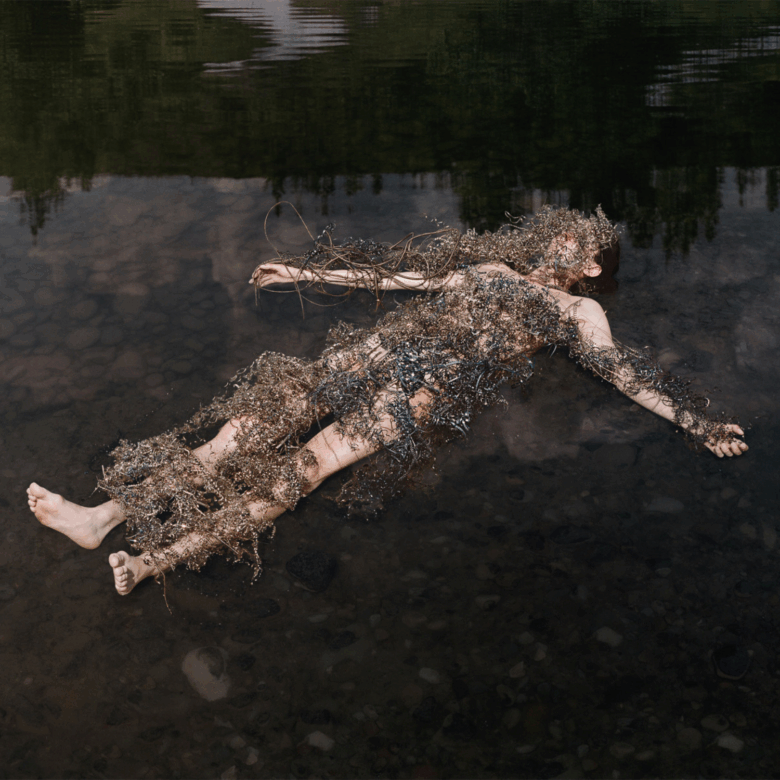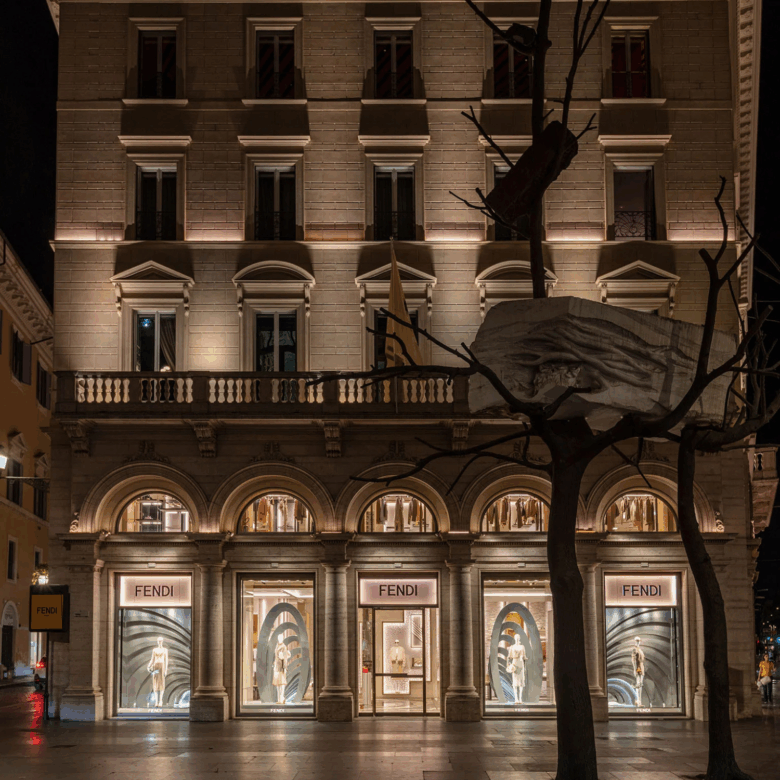Meet Khalil Asmall, the DJ maven behind Livin’ Proof

It’s something of a running joke that everyone in London is a DJ these days. Simply grab the aux, queue a few songs on Spotify and suddenly you’re considering switching out your day job as a data analyst to open for Calvin Harris in Ibiza. So standing the test of time in an industry that increasingly appears to value going viral on Instagram and TikTok is no small feat, and is something Khalil Asmall knows a thing or two about.
Having recently played for an audience of over three thousand party-goers at New York’s Pier 17, it’s a slight change to his early days playing London’s house party circuit with his selection of vinyl records in tow. Starting out in the early 2000s, a time when parties were advertised on flyers, hands were free of smartphones and Spotify was just an idea, Khalil is now known for throwing some of the most coveted parties between London and New York with guests including A$AP Rocky, FKA Twigs and Stormzy.
From helping start Livin’ Proof in a basement in Soho, which quickly became known as one of London’s best hip hop parties, he’s continued to successfully launch BackToLife and Shapes since relocating to New York in 2015. While New York is home for now, London runs strong through Khalil’s work and the DJ has managed to curate a sound that’s timeless thanks to his upbringing in the city. Hardly a set goes by that doesn’t feature UK funky, garage, jungle, dancehall and soca — just a few of the genres that make up the beat of London.

Despite selling out world-famous venues with his sets, it’s never been about the money. Making just £20 in the early days of Livin’ Proof, while he makes enough to pay the rent these days, he insists that it’s always been about having a good time.
New York is home, but how did growing up in London influence your work and how have you managed to thread the two cities together?
I would be a totally different person musically if I wasn’t from London. You hear all kinds of music from all different places, even the stuff you hear on the street when you’re passing by a shop, or on the radio in the car. It’s just engrained in me. I think people in London are more open when it comes to music, and carnival is the best example of it. You’re listening to soca and then suddenly you turn the corner and it’s a booming reggae sound system. That’s a very London kind of thing.
I started BackToLife after moving to New York because I didn’t just want to come and be a DJ on the bar circuit like everyone does. I wanted to do my own thing and create a little London in New York. I wanted to play garage, grime, broken beat and UK funky as well as dancehall, Afrobeats and hip hop, and I think what separated our event is that we were Londoners in New York, and we’re connected to the music.
You must listen to a lot of music as a DJ, so how do you keep curating your taste? Is it hard to come up with new sets?
There’s an element of trying to have a timeless side to most of my sets, so there’s always a mix of new and old. A lot of the way I DJ is by uniting the crowd through a common, loved music memory and then you find ways to bring in the newer stuff, or remixes. I play mostly originals because I like it.

You recently posted a video of you playing Erykah Badu in the club at 2am. How did that come about?
That night I was filming. The energy was really cool. I remembered that I’d played Erkyah Badu before so I was like, Let me do that again. I wasn’t sure it was going to work because it was 2am and the place was packed, and it felt like I really slowed it down, but everyone just went with it. Sometimes if you play something that some people love, that’s enough to carry it.
How do you deal with a song not landing?
It happens, but I have a lot of confidence I can turn it around. You get a sense of the room and who’s there, and what the vibe is. Also, you spend a lot of time curating the crowd to trust you and allow you to be free, so you don’t always have to play what everyone wants to hear.
You’ve previously spoken about being shy on stage, and in front of the camera. How do you deal with that?
Once I’m on stage, I’m like, let me just get into my world and my zone. You just get lost in the music. I look bored because I’m always thinking millions of tracks ahead. I think that back in the day, a lot of DJs were people that loved music and liked going out, but weren’t the most comfortable in the crowd, so it was a way for you to be at an event and hide behind the booth.
Now there’s been a huge shift and the DJ has become the thing more than anything else, more than the music even. So they’re put on the stage and there’s a light on you and I find it really awkward. If I go and see a DJ dancing around I think it’s cool, whereas if I see me who looks bored as shit, it’s not the most fun spectacle. I have to work harder because I don’t have the dancing facilities. I have to really capture people and create a moment with what I’m doing. People come and shove the phone in my face and I’m like, I can’t do anything for you, I can’t perform.

Do you think people should be putting their phones away in the club?
That’s something that’s being talked about a lot recently — how it’s not just the crowd holding up cameras, filming the DJ that kind of changes the experience, it’s the fact that there’s so many cameras at the party filming everyone. The idea of being totally free and letting yourself go and enjoying this moment is kind of lost, because everything is being filmed and everything’s being captured and going to be online somewhere.
Speaking of being online, there’s that joke that anyone can be a DJ. Can they?
Haha, yeah. It’s easy. So easy. Anyone can buy a controller for maybe £100 and if you’ve got a laptop and any sort of speaker, even your laptop speakers, you can DJ. But I think to actually have a career in it is probably a lot harder because everyone can do it and everyone is doing it, so I wouldn’t even know where to begin. When I started out, it was a much slower build up. You had to invest in equipment which wasn’t cheap, and then you’ve got to buy records and you can’t have every track that you love. So your set and music collection was a little more thought out or intentional, and you made the best you could with it.
It was only really house parties that I got to play at the beginning, and it wasn’t like I was doing the main set. I was playing early or late in the night with my little bag of records. It’s crazy because everything now is really easy, but then the skill is like, what is the idea? Not whether you can execute it, but is the idea interesting? A lot of people say you’ve got to read the crowd and give them what they want, but I don’t agree. I think it’s like, create the crowd you want and play the music you want and you’ll find the right people, and you can take them in different directions. That’s what I think the best DJs do.
You clearly know what it takes to be a good DJ. How have you managed to stand the test of time?
I think that if you just focus on the good, then it will last longer. Money’s never been the goal, but you’ll always make money from doing something good. Obviously we have to be able to afford to pay everyone and run the event and pay our rent, but the topic is never how do we make the most money, it’s how do we make the best event? And then people want to be part of it, because it’s fun. If you do something fun, people want to have fun. There’s been millions of DJs who blow up and sell out huge venues and sort of disappear and maybe that’s fine and what they want, but it’s kind of cool that there’s a lot of people from my generation who have been doing this for twenty years. It makes you grateful for it — that you’re still doing this.
- WriterSydney Evans
- Banner Image Credit@davefotogram / Instagram




